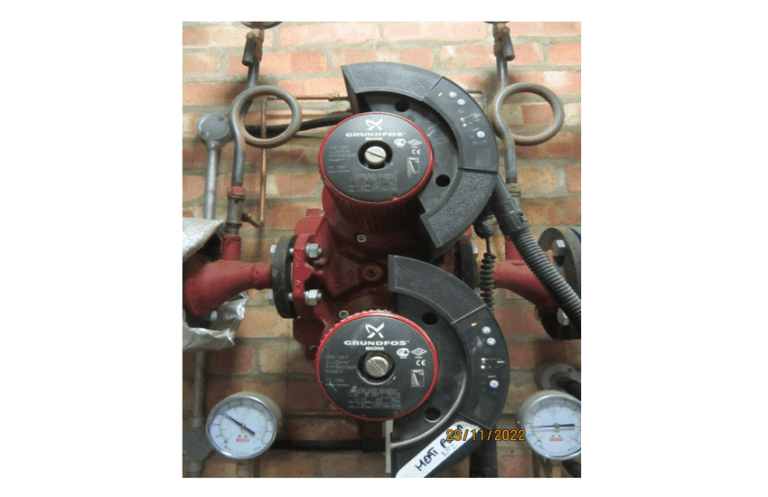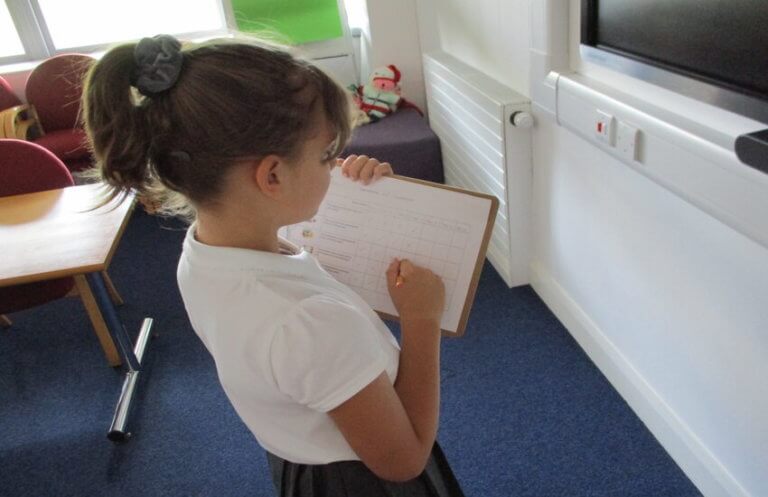Finchale Primary School
Finchale Primary
Finchale Primary School is a one form entry primary school in a suburb of Durham City. It is a member of the Durham County Council (DCC) Energy Management and Carbon Reduction Service Level Agreement, supported by the ECO2 Smart Schools programme.
As part of this service, the DCC Energy Team reviews energy consumption trends over time and alerts building managers of unusual energy consumption, however this process doesn’t necessarily address more fundamental design or commissioning issues where high background power consumption has become the norm.
Using the profile function in the Systemslink energy management software package, it was noticed that Finchale Primary had a consistently elevated background electricity consumption all year round. Surveying the school during a daytime visit didn’t yield anything significant so the DCC Energy Team arranged to survey it again on a Sunday afternoon. During this second survey, it was observed that two sets of heating circulation pumps were running despite the control system not operating the heating at the time. Ironically, these new high efficiency pumps were operating when they didn’t need to because of their additional, more complex local control functions being inadvertently left in a mode which kept them running after the building management system had called for them to be switched off.
The following week, the circulation pumps were re-programmed and other changes and checks were made including programming the air conditioning into economy mode, checking boiler flow temperatures were in the condensing temperature zone, and changing the controls on the outdoor lights. These changes have resulted in the daily electricity consumption, when the school is closed, reducing from 80 – 90 kWh/day to 50 – 60 kWh/day.
Shortly after the visit, the school invested their government energy grant into replacing the school hall lights with LEDs. This has reduced the school’s daily electricity consumption whilst open.


19% Carbon Reduction
The focus and time spent on the out of hours usage was key. It also highlighted that more complex, high-efficiency equipment needs to be correctly commissioned to provide benefits; if it is not set up correctly, it can actually be worse.
Looking at what heating and cooling plant, equipment and teaching aids are consuming power when the school is closed is important as they can play a big factor in the overall energy consumption. Schools are typically fully open for around 200 days per year, meaning there are 165 days where they are typically closed, however, there is also 365 evenings and nights where there are no, or limited staff present to witness what is consuming energy when it shouldn’t be.
The school recently received their annual report from their OASES Energy Officer as part of the ECO2 Smart Schools programme. The report concluded that over the last 12 months, the school’s carbon emissions have reduced by 19% on the previous year, which the school are delighted with. Going forward the school will be working with their OASES Energy Officer, through the ECO2 Smart Schools programme, to introduce further energy saving measures. SLT shared their school’s annual energy report with the wider staff to give them an understanding of the costs associated with electricity and the potential savings which the school could make by using less. Staff are actively encouraged to turn off lights in unoccupied areas, and to switch off screens when they are no longer in use.
Through the ECO2 Smart Schools programme, the school’s OASES Energy Officer will also work with them to set up an eco-committee, where pupils and staff will work collaboratively to further reduce the school’s energy consumption and climate impact, and educate the school community on climate change and energy usage.
“We are committed to reducing our energy use in school and educating children the impact we can make with simple small changes in school. The more energy we save, the better it is for the planet, but also the less we spend on energy, the more we have to spend on giving our children the best educational experience possible” – Head Teacher.
See all ECO2 Smart Schools Case Studies
Our library of case studies keep on growing as more smart schools join and get involved with our projects.

Educational
We help you create practical and engaging learning experiences exploring energy, climate change and the environment throughout the curriculum.

Savings
Through our support and expertise we help schools to make significant savings through practical changes and implementation of the programme.

Environmental
resources for the whole school community to learn more about the environment and how to make positive changes to safeguard it for the future for all.